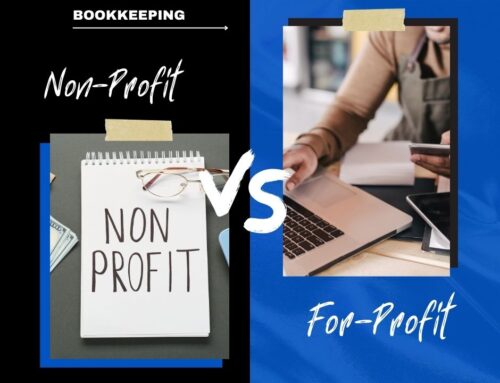Like most industries, the world of accounting has been evolving before our eyes. Most of these changes have been driven by advancements in technology.
Decades ago, we were forced to do accounting the old-fashioned way—using a pencil and piece of paper. We eventually replaced those tools with a computer, but accounting still required quite a bit of manual labor.
The future of accounting is a bright one. I think it’s safe to say that the industry has had more advancements in the past five years than the last 50 years combined.
In 2020, there are eight major trends driving big changes for accountants and bookkeepers.
As a small business owner, you need to understand how these trends will impact the future of your organization.
1. Automation
Most accounting tasks can be automated. Even if you ditched the pencil and paper method, your business is falling behind if you’re manually inputting data into a spreadsheet.
With manual data entry becoming a thing of the past, businesses are saving tons of money in productivity hours.
There are dozens of tools on the market today that will automatically sync your bank transactions with your accounting records. The same goes for things like customer receipts and sales transactions.
In addition to saving time, automating accounting tasks reduces the risk of human error and eliminates confusion.
We’re not quite at the point of taking the human element entirely out of the accounting process though. But some larger firms have been experimenting with artificial intelligence to improve their accounting automation.
2. Accounting Software
The days of using Microsoft Excel and other similar spreadsheets to manage accounting tasks are long behind us.
There are plenty of other sophisticated accounting solutions on the market today, designed to accommodate the needs of all businesses.
These solutions are affordable and extremely easy to use. It’s easy to scale your accounting processes with this type of software as well.
Another top benefit of accounting software is the ability to provide direct access to your accountant. You won’t have to worry about printing dozens, or potentially hundreds, of documents and mailing them during tax season.
Does your small business need a software upgrade? Review our guide on the top ten signs your business needs new accounting software.
3. Cloud-Based Accounting Solutions
Accounting software isn’t the only thing on the rise in 2020. Specific types of solutions, like cloud-based accounting software, are growing in popularity as well.
According to a recent study, 33% of businesses are still using accounting software that does not connect to the Internet. You won’t get the most out of these solutions. Plus, they come with a substantial amount of risk.
Desktop software requires constant backups. But if something happens to your computer or external hard drive, your accounting records could be lost forever.
Cloud-based solutions eliminate this problem. All your data is stored safely and securely in the cloud. Plus, you’ll be able to access your records from anywhere. Cloud-based accounting won’t limit you to the desktop computer in your office.
4. Big Data and Analytics
New technology has given business owners and accountants access to more information than ever before. As a result, accounting professionals and financial advisors can use this data for strategic business consultation.
Accounting information isn’t as black and white as it once was.
CFOs, controllers, and accountants use different types of data to run predictive analytics.
The opportunities here are endless. From running a two-year cash flow forecast to analyzing customer behavior and industry trends, it’s easier for business owners to make more informed financial decisions.
Big data and analytics help take the guesswork out of crucial decisions that you’ll face on a regular basis.
5. Outsourcing
Not every business owner can afford to hire a full-time, in-house bookkeeper. With limited funds, an entire in-house accounting department isn’t realistic for most organizations.
Fortunately, it doesn’t have to be.
More and more small to mid-sized businesses are outsourcing accounting responsibilities. From outsourced bookkeepers to interim CFO services, you can get everything you need from a third party.
The reason why outsourcing is growing in popularity is because it’s so appealing. You don’t have to worry about the costs associated with full-time employment.
Outsourcing also gives any business access to top-level talent. For example, you can work with an outsourced CFO that would normally be unattainable for smaller organizations.
Review our guide on the most common outsourced CFO services to learn more about the benefits of outsourcing your accounting needs.
6. Mobile Accessibility
Earlier, we talked about accounting software and cloud-based technology. But the future of accounting takes these tools one step further. It’s now possible to manage your financial data from the palm of your hand.
The best accounting tools have mobile apps.
Virtually everything that can be done from a computer can be accomplished from your smartphone or tablet.
Want to review your bank reconciliation from last week while you’re in the back seat of an Uber? No problem.
Do you have a paper receipt that you don’t want to lose? Just use your mobile accounting tool to snap a photo of it. The receipt will automatically be recorded and categorized appropriately.
7. “Green” Accounting
All these technological advancements have made it possible to eliminate paper accounting.
Some businesses have rooms filled with boxes and filing cabinets of paper records. Enterprise-level organizations have entire floors the size of a small library with documents.
Paper records are susceptible to theft, damage, and it’s easy for things to get lost. Plus, think about how long it takes to search for one piece of paper buried amongst thousands of others.
Going “green” also eliminates costs related to paper, ink, envelopes, stamps, and equipment like fax machines and printers.
80% of businesses want to implement paperless processes and workflows. The accounting department is the most logical place to start since historically it’s been a paper-heavy industry.
To keep up with the latest trends, check out our guide on how to implement paper-free bookkeeping.
8. Tools Integration
Another benefit of leveraging technology is the ability to integrate your accounting software with other tools that your business is already using.
For example, you can integrate point of sale software like Square with an accounting solution like QuickBooks.
Bill.com is another useful tool for sending invoices, paying bills, and getting paid. This solution also integrates with accounting software like QuickBooks, Xero, and Sage.
Conclusion
Every business owner needs to stay up to date with the latest accounting trends. Failure to adapt can be a costly mistake.
Change is a good thing. Technology and outsourcing can dramatically improve your small business bookkeeping department.
For additional assistance, contact us here at Navitance. We can go over your needs and see if outsourced bookkeeping and new technology is the right fit for your organization.





